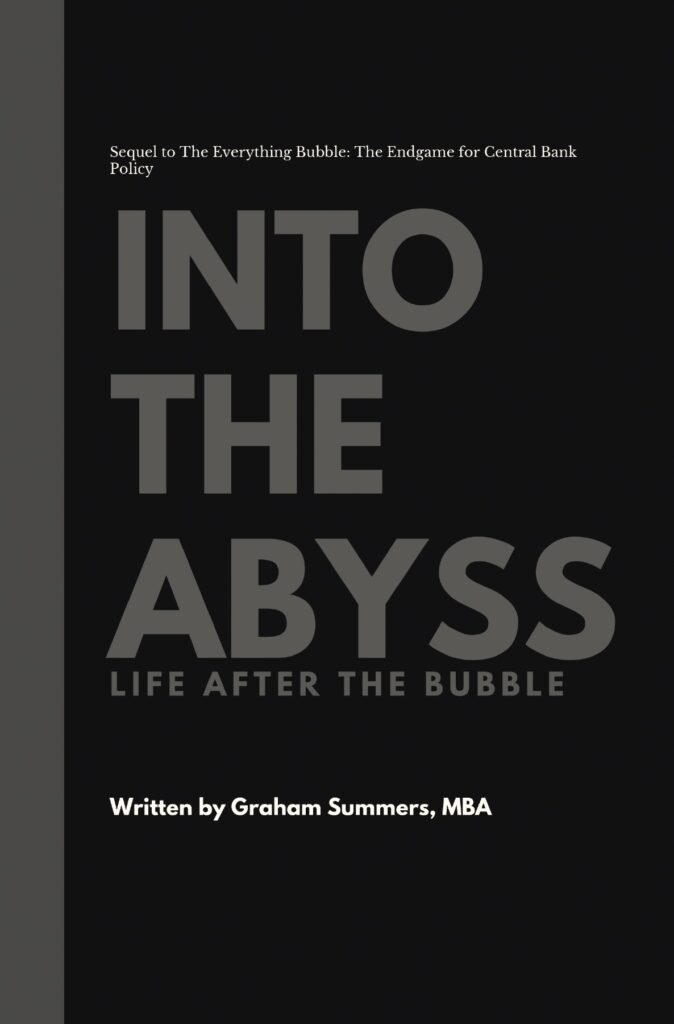For the last year, I’ve steered clear of commenting on the US Presidential election for the simple reason that I wanted us to be closer to the actual date before I went through the process of explaining what’s to come.
The reason for this is that elections by their very nature are conflicting processes. Most people vote based on emotions when we are in fact electing someone to fulfill a role that is economic in nature.
This is evident in the fact that the political hot issues being promoted (abortion, gay marriage, etc.) are in fact peripheral (they directly impact a small minority of the population) while the larger more pressing issues (the US deficit, the debt, the US Dollar, the Fed) receive very little airtime.
I didn’t want to get sucked into this because frankly, there’s no point. The US is facing much bigger issues than whether or not someone wants us to pay for their birth control or whether people of the same gender want to be married.
I apologize if this offends anyone, but this is the truth. Today, the US is running its fourth $1+trillion deficit. Our Deficit to GDP ratio is nearly 10%. Our “official” Total Debt to GDP is well over 100% though when you include the debt hidden in various Government entities and unfunded liabilities we’re well over a Debt to GDP ratio of 300% at this point.
To put these numbers into perspective, Greece had a Deficit to GDP ratio of 12% and a Debt to GDP ratio of 150% when it first entered its sovereign debt crisis. It’s since seen a GDP collapse of 20%: one of the largest economic collapses worldwide in the last 30 years.
Of course, you cannot simply compare economies by just two numbers. The US has many advantages Greece does not, including:
1) The US has never defaulted on its sovereign debt
2) The US has its own Central Bank that can print Dollars (Greece’s Central Bank cannot print Euros)
3) The US is the largest most dynamic economy in the world and the provider of the world’s reserve currency: the US Dollar.
Because of this, the US gets a pass where other countries (Greece, Spain, Ireland, Portugal, Italy and soon France and Germany) do not. However, this will not always be the case. Once the debt implosion finishes in the EU, it will then spread to the UK, China, Japan, and finally the US.
At that point, the US will experience something very similar to what Greece has experienced.
Timing this in advance is virtually impossible. But we get clues as to when it might happen. Last year, the US Federal Reserve monetized over 70% of all debt issuance. The recipe for hyperinflation and a currency collapse has been the same throughout history: the rampant monetization of deficits.
Thus far, we’ve managed to get away with this for the reasons I listed above. However, this will not always be the case. And if the US does not deal with its debt problems now, we’re guaranteed to go the way of the PIIGS, along with an episode of hyperinflation.
That is THE issue for the US, as this situation would affect every man woman and child living in this country.
On that note, if you are not preparing for a US debt collapse , now is the time to do so. The reality is that the Central Banks are fast losing their grip on the markets. They’ll never admit this publicly, but I can assure you that Bernanke and pals are scared stiff by what’s happening in the banking system right now.
If you’re looking for someone who can help you navigate and even profit from this mess, I’m your man. My clients made money in 2008. And we’ve been playing the Euro Crisis to perfection, with our portfolio returning 34% between July 31 2011 and July 31 2012 (compared to a 2% return for the S&P 500).
Indeed, during that entire time we saw 73 winning trades and only one single loser. We’re now positioning ourselves for the next round of the Crisis with several targeted investments that will explode higher as the global debt implosion accelerates.
To find out what they are, and take steps to protect your portfolio from the inevitable collapse…
Graham Summers




